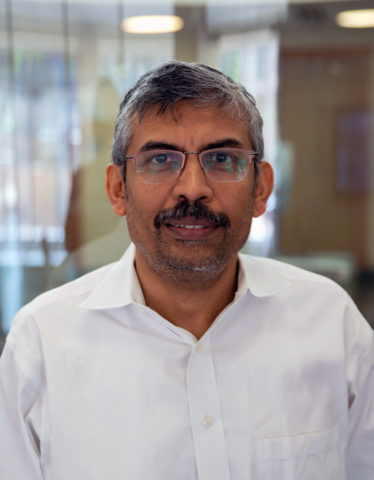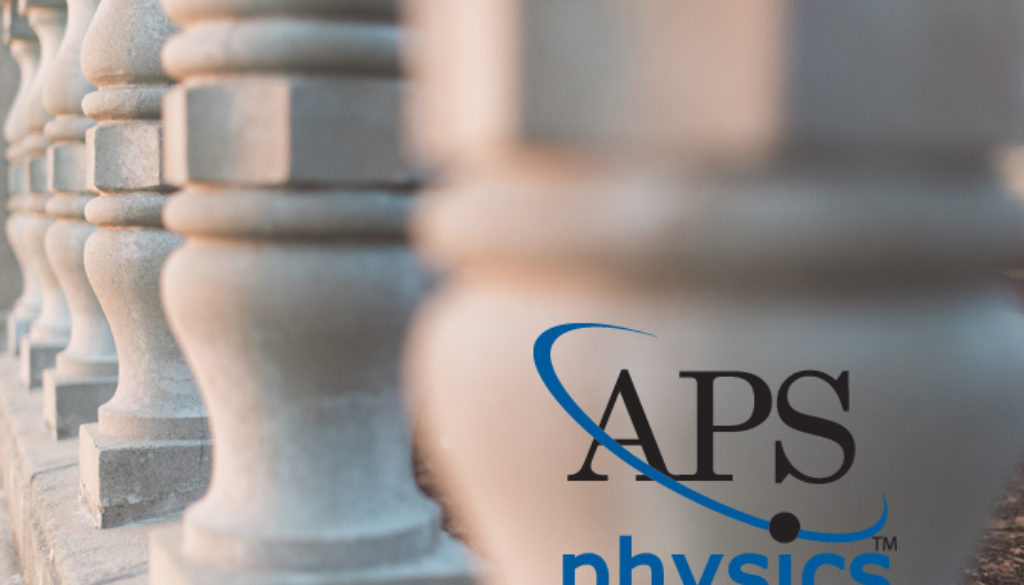Texas A&M Physicist Bhaskar Dutta Elected as 2020 American Physical Society Fellow
Dr. Bhaskar Dutta, professor of physics and astronomy at Texas A&M University and director of the George P. and Cynthia Woods Mitchell Institute for Fundamental Physics and Astronomy, has been elected as a 2020 Fellow of the American Physical Society (APS), the world’s largest organization of physicists.
No more than one-half of 1 percent of the organization’s current membership is selected by their peers for inclusion in the APS Fellowship Program, which was created to recognize advances in knowledge through original research and publication, innovative contributions in the application of physics to science and technology, and significant contributions to the teaching of physics or service. Dutta is one of 163 Fellows announced September 28 by APS and one of four selected from Texas-based institutions.

Dutta, an expert in the field of theoretical high energy and neutrino physics who was nominated by the Division of Particles and Fields, is cited “for outstanding and original contributions to the understanding of particle physics phenomenology, in particular dark matter, neutrinos, models and collider physics.”
Dutta joined the Texas A&M Department of Physics and Astronomy in 2005 as an associate professor, earning promotion to full professor in 2009 and subsequent appointment as interim director of the Mitchell Institute in 2012. He was appointed in May 2019 as holder of the Mitchell-Heep Chair in High Energy Physics.
As a world leader in the search for new fundamental particles and dark matter, Dutta is considered one of the most prolific theorists of his generation, given his distinguished record of research in high energy physics, highly cited publications in top journals and many invited plenary talks in major international conferences. His broad research program attracts continual funding through the U.S. Department of Energy’s theoretical physics program as well as the National Science Foundation and covers topics such as model building, cosmology, inflation, origin of dark matter, matter-antimatter asymmetry, neutrino physics, grand unification theory (GUT) models and collider physics. Within his department, Dutta has developed particularly strong collaborations with experimentalists as well as astrophysicists, regularly co-authoring papers published in peer-reviewed journals and multidisciplinary publications.
“This is a well-deserved and probably long-overdue award honoring a distinguished member of our community, Professor and Mitchell-Heep Chair in High Energy Physics Bhaskar Dutta,” said Dr. Grigory Rogachev, professor and head of Texas A&M Physics and Astronomy. “He is working at the cutting edge of our knowledge of constituencies of sub-atomic matter, and his theoretical ideas provide fertile ground for experimental searches of new symmetries, particles and fields.”
In addition to research, Dutta is widely regarded as an excellent classroom teacher, graduate student mentor and science outreach proponent, participating each year in the spring Texas A&M Physics and Engineering Festival and co-organizing the Mitchell Institute Physics Enhancement Program for high school physics teachers every summer for the past decade. He was recognized with a Texas A&M Association of Former Students College-Level Distinguished Achievement Award in Teaching in 2012.
Dutta received his Ph.D. from Oklahoma State University in 1995 and completed postdoctoral study at the University of Oregon (1995-1998) and Texas A&M (1998-2002) prior to beginning his independent academic career as an assistant professor at the University of Regina in Canada (2002-2005).
Founded in 1899, the American Physical Society is a nonprofit membership organization working to advance and circulate the knowledge of physics through APS research journals, scientific meetings, education, outreach, advocacy and international collaboration. The APS is composed of more than 55,000 members, including physicists in academia, national laboratories and industry in the United States and throughout the world.
To learn more about the American Physical Society or the APS Fellowship Program, go to http://www.aps.org.
For more information on Dutta and his teaching, research and service-related activities and accomplishments, visit https://physics.tamu.edu/people/dutta/.
# # # # # # # #
About Research at Texas A&M University: As one of the world’s leading research institutions, Texas A&M is at the forefront in making significant contributions to scholarship and discovery, including that of science and technology. Research conducted at Texas A&M represented annual expenditures of more than $952 million in fiscal year 2019. Texas A&M ranked in the top 20 of the National Science Foundation’s most recent Higher Education Research and Development survey (2018), based on expenditures of more than $922 million in fiscal year 2018. Texas A&M’s research creates new knowledge that provides basic, fundamental and applied contributions resulting, in many cases, in economic benefits to the state, nation and world. To learn more, visit Research@Texas A&M.
-aTm-
Contact: Shana K. Hutchins, (979) 862-1237 or shutchins@science.tamu.edu or Dr. Bhaskar Dutta, (979) 845-5359 or dutta@physics.tamu.edu
The post Texas A&M Physicist Bhaskar Dutta Elected as 2020 American Physical Society Fellow appeared first on Texas A&M College of Science.
